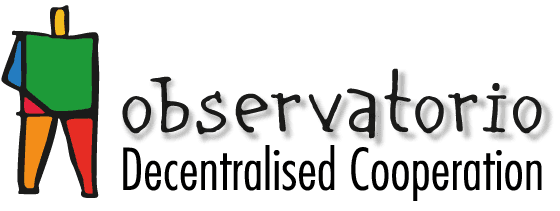URB-AL III (2009-2013) is an innovative program of decentralized cooperation of EuropeAid (European Commission) with Latin America whose objective is the impulse of local public policies that contribute to increase the degree of social cohesion in the subnational collectives of the region and that they can become reference models.
The Program, with nearly 1.8 million beneficiaries, is made up of 20 cooperation projects implemented in 74 Latin American territories and by an Office of Coordination and Orientation (OCO). Within the framework of URB-AL III, 131 local public policies have been generated or strengthened that contribute to fostering social cohesion in more than 500 Latin American municipalities.
The projects and the OCO are horizontal Euro-Latin American consortiums composed of subnational governments under a territorial approach. URB-AL III has the participation of more than 160 Euro-Latin American non-state actors.
Through the consolidation or promotion of processes and public policies, the Program has encouraged the construction of reference models capable of indicating possible solutions to Latin American subnational governments that wish to promote social cohesion dynamics. This aspect highlights the pioneering and innovative nature of the implementation of URB-AL III, which has managed to move from the "one-off project" to "public policy" and has demonstrated the importance of supporting local governance processes and institutional strengthening to respond to the needs of citizens.
URB-AL III has become a laboratory and a reflection of the new dynamics of cooperation and development, in which the local government is located at the center as the engine of economic and social development of its territory. The themes worked by the projects have been diverse and articulated around the five dimensions of social cohesion: civic, productive, institutional, social and territorial.
Among the main achievements, which contribute to the sustainability of the results, include the creation of a common Euro-Latin American language and agenda on social cohesion, the capacity for multilevel and multisectoral articulation, political-institutional advances, the construction of networks or the development of new instruments to improve local public management.
The OCO is a consortium of public administrations led by the Barcelona Provincial Council and also integrated by the International and Ibero-American Foundation for Administration and Public Policies (FIIAPP, Spain), the Tuscany Region and the Interregional Observatory for Development Cooperation, OICS (Italy), the Municipality of San José (Costa Rica), the Mayor of Bogotá (Colombia) and the Province of Santa Fe (Argentina).

















